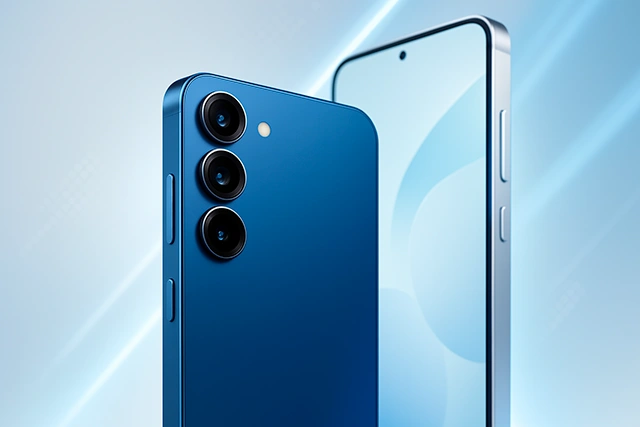7 Essential Tips for Choosing the Right Store When Buying Premium Smartphones Like Samsung S25

Investing in a premium smartphone is a significant decision that goes beyond just choosing the right model. With flagship devices commanding premium prices, choosing the right store for your purchase can be just as important as what you buy. The difference between purchasing from an authorized retailer versus an unauthorized one can impact everything from warranty coverage to product authenticity. As we see exciting releases like the Samsung S25 series entering the market, understanding how to choose the right store becomes crucial for protecting your investment and ensuring the best possible experience.
Table of Contents
1. Verify Official Authorization Status When Choosing the Right Store
The first and most critical step in choosing where to buy your premium smartphone is verifying the store’s authorization status. Official stores are directly partnered with manufacturers, ensuring they receive genuine products through proper distribution channels. These partnerships mean the store has met specific standards set by the manufacturer and maintains ongoing relationships that benefit customers.
When a store holds official authorization, it means they’ve undergone vetting processes, training programs, and agreed to uphold certain service standards. This authorization isn’t just a badge it represents a commitment to maintaining product integrity, providing accurate information, and delivering manufacturer-approved services. You can typically verify a store’s authorization status through the manufacturer’s official website or by looking for certification displays in physical stores.
2. Check Warranty and After-Sales Service at the Right Store
Premium smartphones represent significant investments, making warranty protection essential. Authorized retailers provide manufacturer warranties that are honored globally or regionally, depending on the brand’s policies. These warranties typically cover manufacturing defects, software issues, and sometimes even accidental damage, depending on the coverage level.
Beyond basic warranty, consider the store’s after-sales service infrastructure. Quality retailers maintain service centers or have direct partnerships with authorized service providers. They should offer clear processes for warranty claims, transparent timelines for repairs, and loaner devices for extended service periods. The availability of genuine spare parts and certified technicians can make the difference between a quick fix and weeks of waiting.
After-sales support also includes software updates, troubleshooting assistance, and trade-in programs. Stores with robust after-sales service often provide dedicated customer support channels, whether through physical service centers, hotlines, or online chat systems.
3. Compare Pricing Transparency
While competitive pricing is important, transparency in pricing structure matters even more when buying premium devices. Reputable stores clearly display all costs upfront, including taxes, fees, and any additional charges. They should provide detailed breakdowns of what’s included in the price – whether it’s just the device, or if accessories, extended warranties, or service packages are bundled.
Be wary of stores offering prices significantly below market rates, as this often indicates gray market products, refurbished units sold as new, or devices without proper warranty coverage. Legitimate retailers maintain consistent pricing that reflects manufacturer suggested retail prices (MSRP) with reasonable variations for promotions or bundle deals.
Transparent pricing also extends to financing options. Quality stores partner with reputable financial institutions to offer installment plans with clear terms, interest rates, and no hidden fees. They should provide easy-to-understand calculations showing total costs over the payment period.
4. Research Store Reputation and Reviews
In our connected world, a store’s reputation is easily verifiable through multiple channels. Start by checking online reviews across various platforms – not just the store’s own website. Look for patterns in customer feedback, paying attention to how the store handles complaints and negative reviews. A professional response to criticism often indicates good customer service standards.
Social media presence can also reveal much about a store’s operations. Active engagement with customers, regular updates about new products, and transparent communication during issues all point to a customer-focused approach. Check for any news articles or consumer reports about the store, particularly regarding any past controversies or outstanding customer service.
Industry certifications and awards provide additional validation. Many regions have consumer protection agencies or retail associations that recognize excellence in service. Membership in such organizations often requires adherence to specific standards and ethical guidelines.
5. Evaluate Product Availability When Choosing the Right Store
Premium smartphone launches often create high demand, making product availability a crucial factor. Established stores typically have better relationships with manufacturers, ensuring more reliable stock levels and access to the latest models. They receive allocation priorities and can often provide accurate restock timelines when products are temporarily unavailable.
Good retailers maintain real-time inventory systems, allowing customers to check availability online before visiting physical stores. They should offer reservation systems or waiting lists for high-demand products, with clear communication about expected arrival dates. Some stores even provide notifications when specific models or configurations become available.
Consider the store’s range of products as well. Retailers carrying comprehensive lineups demonstrate stronger manufacturer relationships and can offer better comparisons between models. This variety also indicates the store’s commitment to the category rather than being an opportunistic seller during product launches.
6. Consider Payment Options and Security
Premium smartphones require significant financial outlays, making payment flexibility and security paramount. Reputable stores offer multiple payment methods, from cash and cards to digital wallets and cryptocurrency in some markets. They should use secure payment processing systems with encryption and fraud protection.
Financing options deserve special attention. Quality retailers partner with established financial institutions to offer installment plans with competitive rates and flexible terms. They should clearly explain all financing terms, including interest rates, processing fees, and early payment options. Some stores offer zero-interest promotions during special periods, but ensure these don’t come with hidden costs elsewhere.
Payment security extends beyond the transaction itself. Good stores provide detailed receipts, maintain transaction records, and offer easy processes for returns or refunds within specified periods. They should have clear policies about data protection and never pressure customers for unnecessary personal information.
7. Look for Value-Added Services
Distinguished retailers go beyond simple transactions by offering services that enhance the ownership experience. These might include free data transfer from old devices, initial setup assistance, and basic training on new features. Some stores provide exclusive accessories bundles, extended warranty options at competitive prices, or membership programs with ongoing benefits.
Insurance programs represent another valuable service. Quality stores partner with reputable insurance providers to offer comprehensive coverage against damage, theft, and loss. They should clearly explain coverage terms, claim processes, and any deductibles involved.
Trade-in programs can significantly reduce upgrade costs. Good retailers offer fair valuations for old devices, transparent assessment processes, and immediate credit application toward new purchases. Some even provide trade-in value guarantees that protect against market fluctuations.
Making the Right Choice: A Case Study
To illustrate these principles in action, consider how they apply when shopping for the latest flagship devices. For instance, when looking for the new Samsung S25, you’d want to ensure you’re buying from Samsung’s official retail partners. In Indonesia, Bumilindo stands as an example of an official Samsung store that checks all these boxes – from authorized status and comprehensive warranty support to transparent pricing and extensive after-sales service. Such official stores ensure you’re getting genuine products with full manufacturer support, making them ideal choices for premium purchases.
Conclusion
Choosing the right store for your premium smartphone purchase requires careful consideration of multiple factors beyond just price. By verifying authorization, understanding warranty terms, comparing pricing transparency, researching reputation, evaluating availability, considering payment security, and looking for value-added services, you can ensure a purchase experience that matches the premium nature of your chosen device. Remember, the right store doesn’t just sell you a product they provide an ongoing relationship that enhances your ownership experience throughout your device’s lifecycle.







